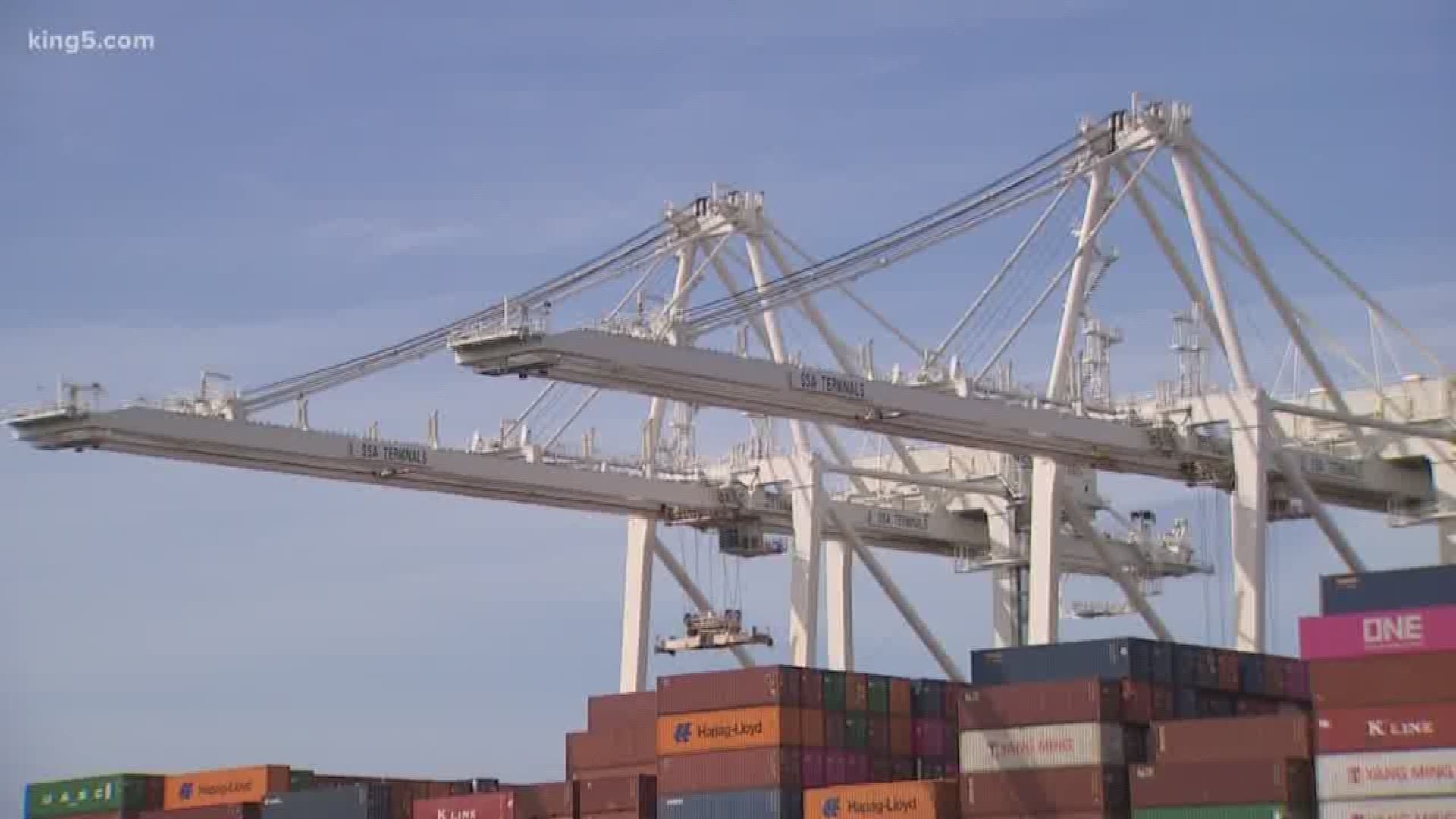SEATTLE — With Friday’s word that President Donald Trump’s trade war with China continues to escalate, the Port of Seattle has expressed concerns about the local economic impacts.
Trump posted a series of tweets calling on U.S. companies to pull out of China. China said it would enact new tariffs on $75 billion in U.S. products. The U.S. previously said it plans to enforce 10% tariffs on $300 billion of Chinese products starting in the fall.
CNBC reported China will target U.S. electronics, including cellphones, along with machinery, aircraft/parts and vehicles. It does not appear this will have an impact on Boeing's core business at this time, but details remain murky.
“What we’re hearing about this latest round of tariffs is it’s a big problem for Washington State,” said Port of Seattle Commissioner Ryan Calkins. “It will affect everyone in the U.S., but as the most trade-dependent state in the nation, it particularly impacts us.”
Though it's an ocean apart, Calkins said the Washington economy is closely tied to China. Imports from the country make up about 60% of the goods coming into Northwest Seaport Alliance ports in Tacoma and Seattle.
China is the top recipient of U.S. exports originating in Washington, according to U.S. Census data.
Calkins said it’s important to remember that the impacts of tariffs can often be delayed by at least several months.
Agricultural producers have told KING 5 that impacts can sometimes be delayed by as much as a year because of demand and shipping schedules.
“Now, we’re starting to see the effects on our importers of the tariffs that have been put in place, and in anticipation of the higher tariffs that are coming,” Calkins said.
“We’ve seen already with the trade war with China that many of our farmers, fishers and ranchers are already being impacted, and some of the short-term band-aid solution to help them, like subsidies for the farmer that have lost their markets, those only go so far,” he added.
He worries that even if a solution is found, and the trade war subsides, permanent damage could remain.
International trade relationships are not like rubber bands, he said, and don’t snap back into place after a dispute. Partners may have moved on to other suppliers in other countries.
The Washington Council on International Trade could not be reached for comment Friday, but previously spoke out about the impacts of tariffs imposed on China.
“WCIT continues to support the goal of leveling the playing field for U.S. companies doing business in China by seeking structural reforms in the Chinese economy, particularly around market access and intellectual property protections,” the group wrote on Aug. 5. “But tariffs are a blunt instrument that hurt the economy. China is Washington state’s largest trading partner, so tariffs place a heavy burden on our businesses, farmers, workers, and consumers.”
Furthering that worry, Calkins said Washington’s competitive shipping advantage with China is its relative proximity. If companies move operations slightly further away in the region, it could suddenly make more sense to ships the goods into ports either on the Gulf or East coasts, taking business away from Washington.
“When I hear about the President asking companies to pull out of China, I think we’re going in the exact opposite direction,” Calkins said. “I’m one who believes we as a free democratic society with a strong economy, we can represent a beacon on a hill, a step towards progress. But when we pull our companies out, we lose the ability to influence other countries in the right direction towards more democracy and open economies.”

